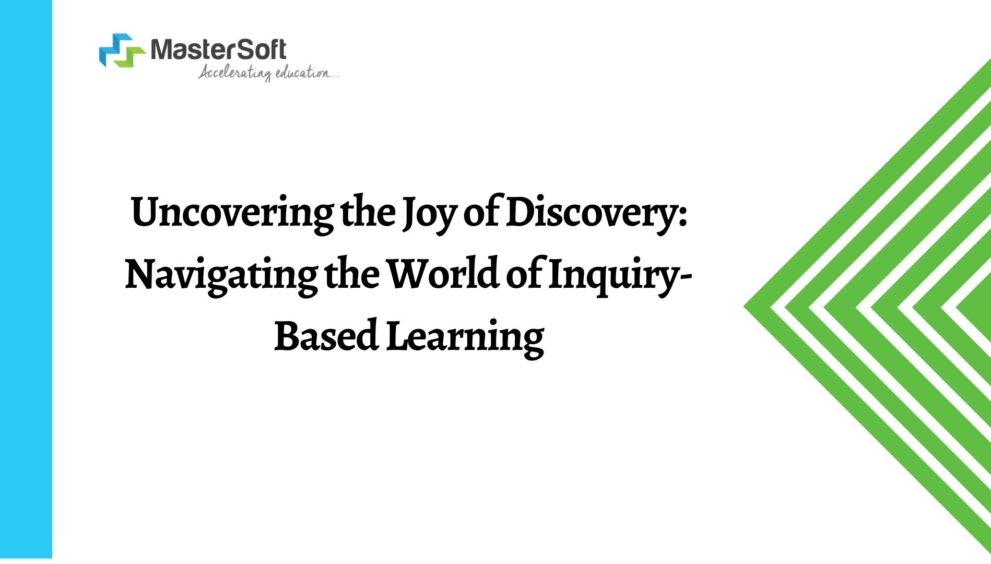Uncovering the Joy of Discovery: Navigating the World of Inquiry-Based Learning

In the ever-evolving landscape of education, innovative teaching methods are steering classrooms towards more engaging and student-driven approaches. One such pedagogical paradigm gaining recognition for its transformative impact is Inquiry Based Learning (IBL). This educational philosophy places the learner at the center, encouraging them to question, investigate, and actively participate in the learning journey. Let’s delve into the principles, advantages, and practical applications that make Inquiry-Based Learning a beacon of inspiration in today’s classrooms.
Understanding the Essence of Inquiry-Based Learning:
Inquiry-Based Learning is not just a teaching method; it’s a philosophy that embraces the spirit of curiosity and exploration. At its heart, IBL empowers students to become independent thinkers and lifelong learners. Rather than passively receiving information, learners take charge of their education, formulating questions, conducting investigations, and constructing meaning through hands-on experiences.
Key Principles of Inquiry-Based Learning:
- Cultivating Curiosity: The cornerstone of IBL is curiosity. Educators create environments that ignite students’ natural curiosity, providing a platform for them to ask questions and embark on intellectual journeys of their own.
- Student-Led Exploration: In IBL classrooms, teachers act as guides, facilitating the learning process rather than dictating it. Students take the reins, exploring topics in depth, and developing a sense of ownership over their education.
- Practical Relevance: IBL connects theoretical knowledge to real-world applications. By grounding lessons in practical contexts, students not only understand the material but also recognize its significance in their lives.
- Critical Thinking Development: Critical thinking is a natural byproduct of inquiry. Students learn to analyze information, evaluate evidence, and construct reasoned arguments, honing skills that are essential for success in academia and beyond.
Advantages of Inquiry-Based Learning:
- Deep-Seated Understanding: IBL goes beyond surface-level learning, fostering a profound understanding of concepts. Students engage with the material on a deeper level, creating a lasting foundation for future learning.
- Intrinsic Motivation: The autonomy granted in IBL cultivates intrinsic motivation. When students have a say in what and how they learn, motivation becomes a natural byproduct of the joy of discovery.
- Holistic Skill Development: Beyond academic knowledge, IBL equips students with a toolkit of essential life skills—research skills, problem-solving abilities, and effective communication—that serve them well in diverse contexts.
- Future-Ready Learners: In a rapidly changing world, adaptability is key. IBL prepares students for the future by instilling a love for learning, the ability to navigate complexity, and the confidence to face new challenges head-on.
Implementing Inquiry-Based Learning:
- Nurture a Culture of Inquiry: Foster an environment where questions are celebrated, and curiosity is nurtured. Encourage students to explore topics of personal interest, creating a classroom culture that values inquiry.
- Provide Access to Resources: Ensure that students have access to a rich array of resources, including books, technology, and experiential opportunities, allowing them to explore their questions comprehensively.
- Facilitate Collaborative Learning: Incorporate collaborative projects and group discussions to enhance peer learning. Collaboration fosters a sense of community and stimulates diverse perspectives.
Conclusion:
Inquiry-Based Learning is not just a teaching strategy; it’s a philosophy that transforms education into a journey of discovery. As we embrace this student-centric approach, we pave the way for a new generation of thinkers, innovators, and lifelong learners. By celebrating curiosity, valuing exploration, and providing the tools for independent inquiry, we unlock the doors to a world where the joy of discovery becomes the driving force behind meaningful and enduring education.


 English
English 
